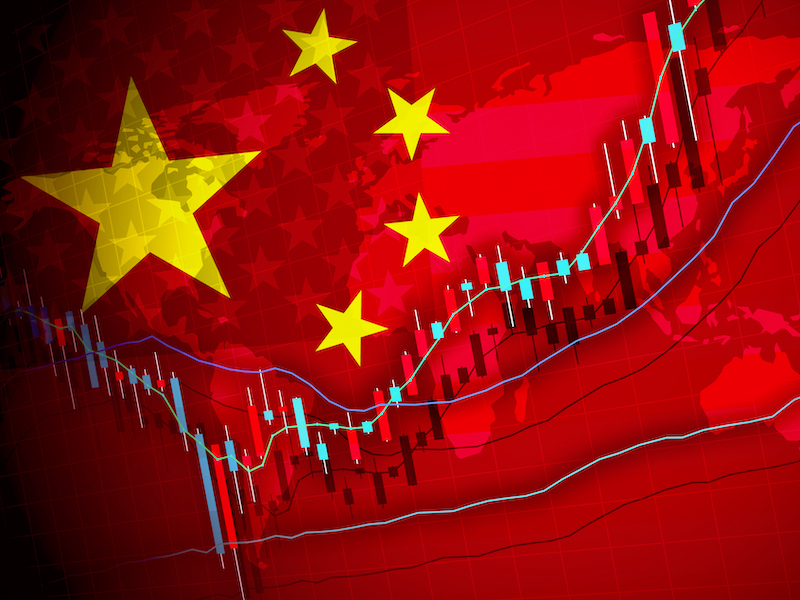

Transcript: Tariffs could push China to apply more aggressive fiscal policy
Chris Kushlis of T. Rowe Price says a 60% U.S. duty on imports from China would not be easily offset through currency depreciation
- Featuring: Chris Kushlis
- November 12, 2024 November 18, 2024
- 13:01
- From: T. Rowe Price

Welcome to Soundbites, weekly insights on market trends and investment strategies, brought to you by Investment Executive and powered by Canada Life. For today’s Soundbites, we’re talking about a rebounding China with Chris Kushlis, emerging market sovereign analyst in the fixed income division at T. Rowe Price. We talked about why the Chinese economy went off track, what it will take to bring it back on course, and we started by asking about China’s current role in the global economy.
Chris Kushlis (CK): China plays a significant role in the world economy. If you just look at the numbers, it’s about 15% of global GDP, so it will have a gravitational pull. It’s also a relatively large trading economy. Over the past 20 to 30 years, China has developed very rapidly from a low-income country to a middle-income country. It imported a lot of commodities to do that, and it also imported a lot of capital goods. And now it’s starting to transition away from being a heavy user of commodities into a manufacturer of a broader range of goods, including intermediate goods and higher-end goods.
What went wrong
CK: So, the Chinese economy has been steadily slowing from 8% growth in the early 2010s down to about 5% right now. In general, the economy is suffering from a significant downturn in the housing market as well as just a huge amount of construction that they did over the prior 15 years. And now the market is trying to digest that supply. They allowed local government debt to run up to a very significant degree. And now they’ve gotten to a point where local governments are struggling with those debt loads, and they’ll have to eventually do something about it.
What it will take to bring China back on course
CK: To some extent, what they’ve done is self-induced, which means they see this as a way of de-risking the economy. They think there was a speculative bubble in housing, and there was too much leverage at the local government level. And they’re willing to endure a reasonable amount of pain in order to reduce those risks. But they also believe that new growth sectors will eventually outweigh the old growth sectors. So, they’ve become quite dominant in a number of sectors like green energy, EVs, solar, increasingly pushing to be self-reliant in semiconductors and other technology areas. Right now, they’re not big enough to offset the drags, but they are steadily growing. And while they’re going through this transition, domestic demand is still very weak, and what you really need is more expansionary fiscal policy and monetary policy to find other avenues for near-term growth and support household incomes.
Opportunities in fixed income
CK: In general, the emerging market rate space is a particularly good place to be right now, because central banks are cutting rates and inflation is low. Credit spreads are generally tight for the good-quality names, somewhat wider for the lower-quality names, or some of the more frontier markets right now. And, in the fixed-income space, the clearest opportunity has been in interest rates. When you go through these deleveraging down cycles, you see a very clear pattern of very low inflation and downward pressure on interest rates. Savings in the economy tend to increase, there’s lower investment, there’s too much money chasing too few safe assets. So, you see the government bonds really do well. And they’ve done very well in China. And I think they’ll continue to be well anchored, even in the face of some incremental fiscal stimulus that they’re starting to do.
Trumpian tariffs
If Trump goes ahead with 60% tariffs on China, that would be significant. It would be hard to find ways to easily offset that with just currency depreciation. It would likely cause further strain and slowing in the Chinese economy, particularly the export sector. And the export sector has been the bright spot in the economy over the last two years. The one thing though it might do is it might push Chinese policy makers to get more aggressive on using fiscal policy, because they realize that they don’t have any other choice.
And finally, what’s the bottom line on China investing in the current moment?
CK: China is still a very important part of the global economy and ultimately the global opportunity set. If you look at its influence more broadly across emerging markets, it’s still a very important influence there. And lastly, it is a very deep equity market. So, even though one may not have an overall positive view on the macro, there are ways you can invest in sub sectors and look for opportunities there, because there is a depth of opportunity there that you don’t get in a lot of different emerging markets.
Well, those are today’s Soundbites, brought to you by Investment Executive and powered by Canada Life. Our thanks again to Chris Kushlis of T. Rowe Price. Visit us at investmentexecutive.com, where you can sign up for our a.m. newsletter and never miss another Soundbite. Thanks for listening.
**
Go back to the article.
